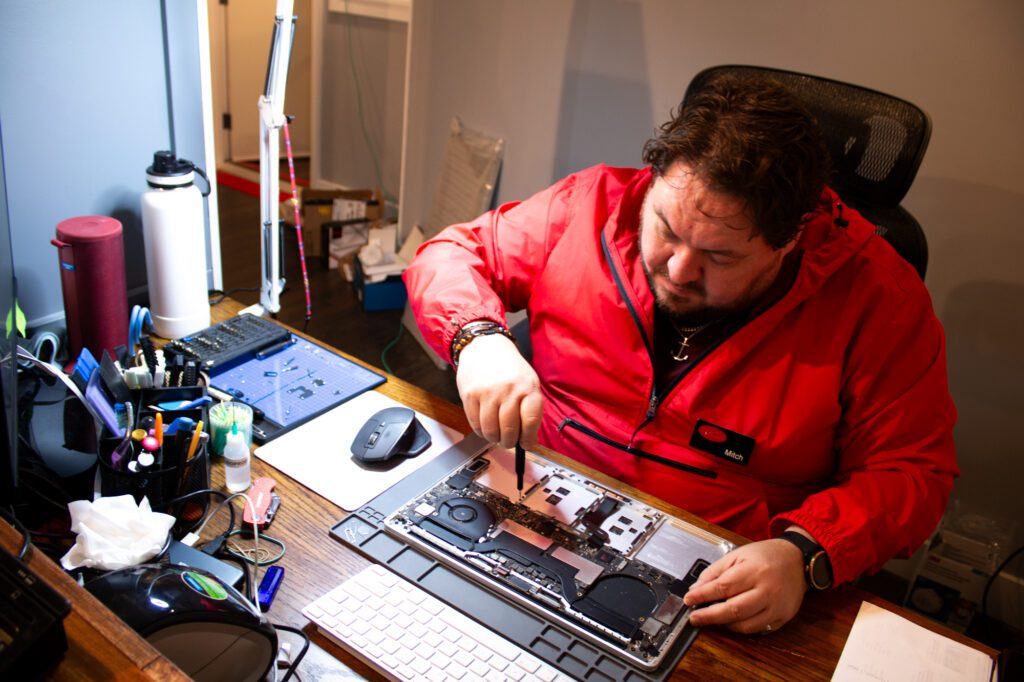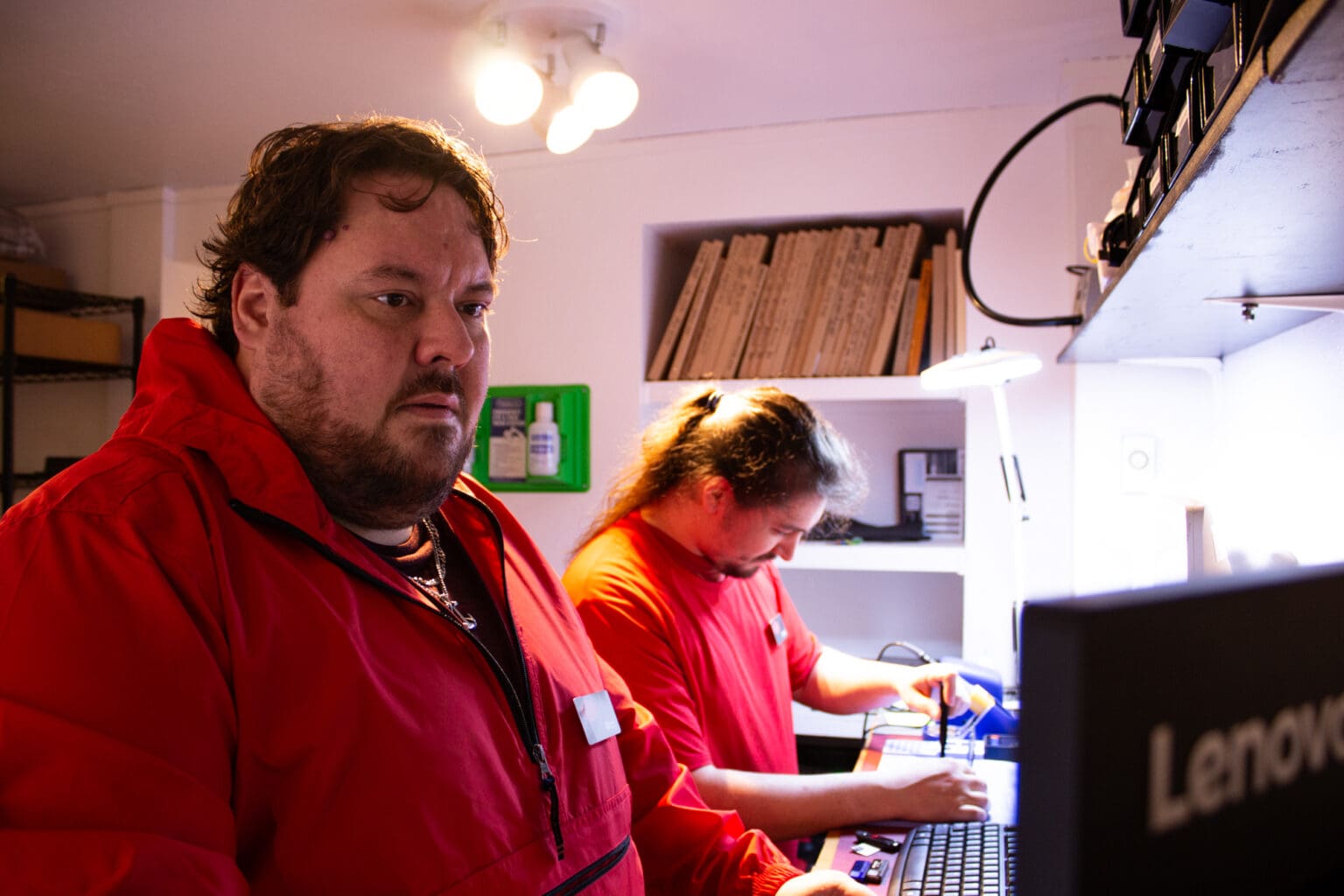Repairing products such as iPhones may get easier in Washington state if a bill pitched by a Bellingham business owner moves forward in the Legislature.
The Right to Repair Act would require manufacturers of certain products, such as phones and computers, to provide independent repair providers with the tools, materials and information needed to fix their products.
Mitch Kramer, owner of FIXCO, an independent repair shop on Commercial Street, pitched the Right to Repair Act to former District 40 Rep. Jeff Morris in 2017. Year after year, Kramer’s ability to fix computers and phones becomes more challenging, he said.
“Everybody’s tired of not being able to fix things and everybody’s tired of the monopolistic practices that have consolidated almost every industry in this country,” Kramer said.
The first version of the bill was introduced into committee in 2018. In March 2023, a version of the bill passed in the House with a 58-38 vote but died in the Senate.
The bill was reintroduced this legislative session. During a Friday, Jan. 12 public hearing, supporters of House Bill 1933 emphasized the importance of an individual’s ability to affordably fix the products they own, and the added benefit of decreasing waste.
A broken device often means having to send it to authorized repair providers or the manufacturers themselves, or buy an entirely new one.
“It’s a waste of money and waste of resources,” said District 40 Rep. Alex Ramel, a sponsor of HB 1933.

Friday’s testimonials from Zero Waste Washington, Environment Washington and Andrew Lee of Seattle Public Utilities described the environmental benefits of HB 1933. Lee said the act would reduce greenhouse gases due to lack of production and keep devices “out of landfills and in use for longer.”
Many states have passed similar legislation, including California, New York, Massachusetts, Maine, Colorado and Minnesota.
Kramer thinks that entering the game late is a benefit.
“The bill here in Washington this year has the most [teeth] out of any other bill … it covers appliances, it covers agriculture, tractors, wheelchairs. It’s not just electronics,” Kramer said.
However, electronics affect the greatest number of consumers, and the ability to fix them is necessary for communities, Kramer said. He described an incident where a frantic mother came into his shop with a broken phone, unable to reach her kids at their various after-school activities. Kramer was able to fix her phone in 20 minutes.
During Friday’s testimonials, Aiden Rouhani, a student representative of the Shoreline School Board, said the need to send devices to authorized repair providers, “perpetuates further redundant costs and further exacerbates the issue of the non-full funding of the school system.”
“This touches everyone,” District 33 Rep. Mia Gregerson, the primary supporter of the bill, told the House Consumer Protection & Business Committee on Friday.
The most vocal opposition to the bill during Friday’s meeting came from those involved in the agricultural industry because “in agriculture, we believe this issue has been effectively resolved,” said Bre Elsey of the Washington Farm Bureau.
The Bureau signed a nationwide memorandum with John Deere and other manufacturers to give farmers and smaller facilities access to tools, parts and information so that they may repair their equipment, Elsey said. Two agriculture equipment dealers opposed the bill, also claiming the issue had been resolved.
While they are the ones who will face loss due to the bill, Apple and Google both back the Right to Repair Act.
“I’m more optimistic now than I was over the last probably three years,” Kramer said.




